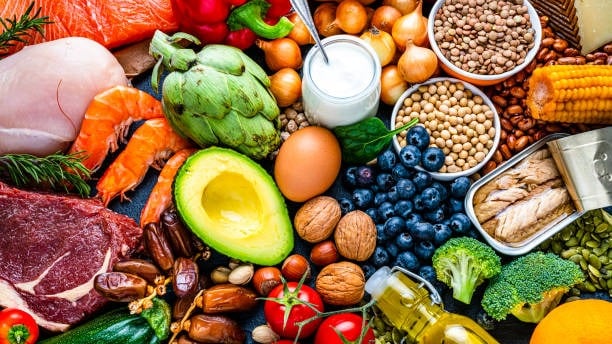Benefits of Healthy Eating
What to include in the dish?
Living in Harmony Team
1/22/20253 min read


The Importance of Healthy Eating for the Body and Mind
Eating a healthy diet is one of the key pillars to ensure quality of life, prevent diseases, and promote overall well-being. While it is common to associate a balanced diet with weight loss, the benefits go far beyond that, extending from improved mental health to strengthening the immune system.
In this article, we will explore the main benefits of adopting a balanced diet and what you should include on your plate to make the most of this practice.
Benefits of Healthy Eating
Prevention of Chronic Diseases
A diet rich in nutrients, fiber, and antioxidants helps prevent diseases like type 2 diabetes, high blood pressure, and cardiovascular diseases. A balanced intake of fruits, vegetables, and whole grains helps regulate blood sugar and cholesterol levels.Tip: Include foods like oats, avocado, and omega-3 rich fish to protect heart health.
Strengthening the Immune System
Vitamins and minerals found in fresh foods help the immune system function efficiently. Vitamin C, zinc, and selenium, for example, play key roles in protecting against infections.Suggestion: Consume citrus fruits, nuts, and dark green vegetables regularly.
Improvement of Cognitive Function
A balanced diet also directly impacts brain health. Foods rich in antioxidants, omega-3, and B vitamins help preserve memory and reduce the risk of neurodegenerative diseases like Alzheimer's.Tip: Include fish like salmon, nuts, and colorful vegetables for a brain boost.
Improvement of Mood and Stress Reduction
Nutrients such as tryptophan, magnesium, and omega-3 contribute to serotonin production, a neurotransmitter linked to well-being.Recommended foods: Banana, dark chocolate, chia seeds, and spinach.
Increased Energy and Vitality
A balanced diet provides the necessary nutrients for proper body function. Complex carbohydrates, like those found in sweet potatoes and brown rice, release energy steadily, avoiding spikes and crashes.Tip: Replace refined carbs with whole grains to feel energized longer.
Skin, Hair, and Nail Health
Vitamins A, C, E, biotin, and omega-3 contribute to hydrated skin, strong hair, and healthy nails.Suggestion: Consume avocado, carrots, flaxseed, and fatty fish regularly.
What to Include on Your Plate?
Fruits and Vegetables
Fruits and vegetables should make up half of your plate. They are rich in fiber, vitamins, minerals, and essential antioxidants.Suggested options:
Fruits: Apple, banana, berries, orange.
Vegetables: Broccoli, carrots, spinach, zucchini.
Lean Proteins
Proteins are essential for tissue building and repair.Recommended sources: Lean meat, fish, eggs, tofu, lentils, chickpeas.
Whole Grains
Carbohydrates are the body's primary energy source. Prefer whole grains, which are higher in fiber and aid in satiety.Suggestions: Brown rice, quinoa, oats, sweet potatoes.
Healthy Fats
Healthy fats are essential for brain function and hormone production.Recommended foods: Avocado, olive oil, nuts, seeds.
Fiber
Fiber is essential for gut health and helps regulate blood sugar levels.Sources: Legumes, fruits, vegetables, whole grains.
Hydration
Don't forget water! Staying hydrated is crucial for all body functions.Tip: Consume herbal teas and flavored water as healthy alternatives.
How to Create a Healthy Diet in Your Daily Life
Plan Your Meals
Having a weekly menu helps avoid unhealthy choices and reduces food waste.Cook at Home
Cooking at home gives you more control over ingredients and portion sizes.Avoid Ultra-Processed Foods
Prefer natural and minimally processed foods. Products like cookies, sodas, and frozen industrial foods often contain high levels of sugar, unhealthy fats, and sodium.Swap Ingredients
Replace less healthy foods with nutritious options. For example:Swap white flour for oat flour.
Replace fried foods with baked or grilled options.
Consume in Moderation
A healthy diet doesn't mean giving up all pleasures. Enjoy sweets or less nutritious foods occasionally, but in moderation.
Conclusion
Adopting a healthy diet is an investment in health and well-being. In addition to preventing diseases, a balanced diet improves mood, increases energy, and promotes a longer and fuller life. With small changes and mindful choices, you can transform your relationship with food and reap the benefits in the short and long term.
So, what are you waiting for? Start making healthier choices today and enjoy everything a good diet can offer!
Want to know more about living in balance? Follow us and discover new ways to take care of your body and mind.
Living in Harmony - @primeconexao
Tips for a balanced lifestyle.
Prime Conection
contact@primeconexao
© 2024. All rights reserved.
primeconexao360@gmail.com
